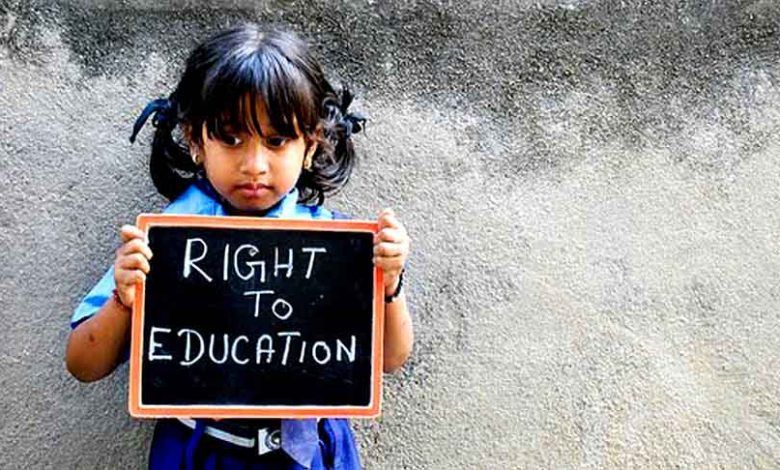
New Delhi (NewsReach) : The Right of Children to Free and Compulsory Education Act, 2009 came into effect on 1st April, 2010. The coming into effect of the Right To Education (RTE) marks a historic moment for all the children of India. The Right of the Children to Free and Compulsory Education had been recognized in 86th Constitutional Amendment. The 86th Constitutional Amendment added a new 2002 by passing the Article 21, (A) making education free and compulsory to all children of the age-group of 6 to 14 years. A new fundamental duty was also added making it mandatory for parents to send their children to schools. The Act is likely to serve a launching pad to ensure that every child has the right to guaranteed quality elementary education. The best part of the legislation is that the parents and the society have a legal obligation to fulfil this duty.

The Act is quite a wide ranging document and all pervasive to ensure quality compulsory and free education to children in the age group of 6-14 years. The world had set itself the millenium development goal of educating every child by 2015. In India alone there are about 32 million children out of schools and about 220 million children get very poor quality of education. The world cannot achieve the millenium development goal as long as Indian children are out of school.

The RTE strives for quality with equity and is likely to improve quality of school education that at present is at the lowest ebb. The morning in every city presents a very depressing scenario of education in India. One need not stretch one’s neck to see different children going to different kinds of schools depending on their economic and social status. This act seeks not only just to ensure elementary education to all but also to reform the system. It stipulates duties for parents, private schools and local communities to ensure that children in the age-group of 6-14 years get free education. Besides, the act seeks to improve the quality of school education that at present is miserably at the lowest.

Even those running unrecognized schools are liable to punishment. If recognized schools do not adhere to certain standards, they are subject to derecognition. These standards have been set in terms of teacher’s qualifications, their duties and pupil-teacher ratio. Teachers are forbidden to take up private tuitions. Nor will they be used for non-educational jobs except for population census, election duty and other national emergency purposes. In case of holding tests and interviews of parents for admission a school may be fined 25000 for first violation and 50000 for subsequent violation. The bill also seeks to do away with capitation fee charged by schools. Moreover, schools cannot deny admission to a child for lack of age certificate nor can he be expelled or detained until he has completed elementary education. Corporal punishment has been prohibited in the schools too. The private schools have also been roped in as a joint effort. 25% of seats in private schools are required to be reserved for disadvantaged students. The minority schools are allowed to allot 50% of seats to their own communities. Besides, the schools need to maintain pupil-teacher ratio 40:01.

The urban-rural divide among students and teachers has to be bridged. So, a provision has been made to impart elementary education in a child’s mother tongue. Few countries in the world have such a huge national agenda to ensure both free and child friendly education to all children. So far our stress has been on quantity rather than on quality.

Government has so far directed efforts to increase enrolment numbers without ensuring quality learning. But RTE would not only help bring all our children into schools but also ensure quality education for all of them, the half of whom continue to be pushed out of the system. However, the success of the RTE hinges on the crucial question of quality teachers.

Educational Reforms are meaningless unless teachers are geared up to implement them, as to educate a child we need good teachers. The RTE would yield results only if we have dedicated and qualified teachers. The Right to Education Act, indeed, poses a serious challenge to all of us.




